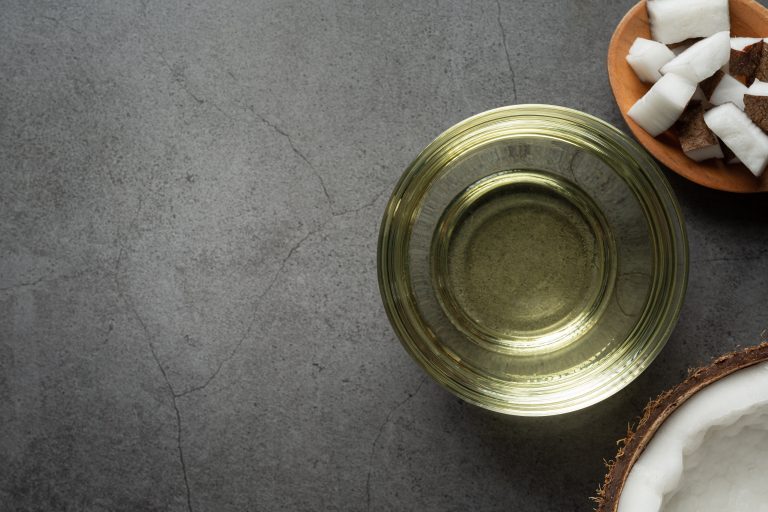5 Reasons Honey Is Great for Throat Swelling Relief
Sometimes, that dreaded scratchy sensation can creep in when you least expect it—perhaps after a long day of talking or sitting in an air-conditioned room. Your throat feels irritated, even swollen, and you reach for the first solution you can think of: honey. This natural sweetener has been celebrated for its soothing properties for centuries. But what makes honey specifically effective for relieving throat swelling? Let’s explore five compelling reasons.
Contents
1. Natural Anti-Inflammatory Properties
One of the main reasons honey is effective for throat swelling is its natural anti-inflammatory properties. Inflammation is the body’s response to irritants, and it often results in swelling, pain, and discomfort. Honey contains antioxidants and compounds that may help reduce inflammation.
A study published in the Journal of Medicinal Food observed that honey can reduce inflammatory markers in the body. The researchers found that honey significantly lowered levels of C-reactive protein and interleukin-6, both of which are indicators of inflammation. This means that when you consume honey, you may be giving your body a helping hand in combating irritation and swelling in your throat (Khan et al., 2016).
Benefits:
- Offers localized soothing effect.
- Reduces the strength of inflammatory responses.
Limitations:
- Effects vary depending on individual response and the type of honey used.
2. Natural Antibacterial Effects
Honey possesses inherent antibacterial properties, making it a safe and effective choice for soothing a swollen throat. Its high sugar content and low pH create an environment that inhibits the growth of many pathogens. This means that honey can help the throat’s mucosal tissue fend off infections.
A study in the Wounds journal emphasized that honey, particularly Manuka honey, has demonstrated potent antibacterial activity against a wide range of bacterial strains. The researchers noted that honey can even promote wound healing by preventing secondary infections (Molan, 2016). When your throat is swollen, avoiding infection can significantly aid in the healing process.
Benefits:
- Helps in fighting off infections that may worsen throat discomfort.
- Promotes faster recovery from throat irritations.
Limitations:
- While beneficial, honey is not a substitute for antibiotics if a bacterial infection is present.
3. Moisturizing and Coating Effects
If you’ve ever taken a spoonful of honey, you might have noticed its thick, viscous texture. This quality isn’t just for show; it contributes to its soothing effects. When applied to the throat—either directly or mixed in a warm beverage—honey acts as a natural demulcent. It creates a protective coating that helps soothe irritation and provides moisture.
Research published in the Archives of Disease in Childhood found that honey is particularly effective for alleviating symptoms of coughing, which often accompanies throat swelling. The researchers suggested that the coating action of honey could reduce irritation, allowing for a more comfortable throat (Paediatrics, 2010). This makes honey a go-to remedy for those nagging coughs that often come with throat discomfort.
Benefits:
- Provides immediate soothing relief.
- Keeps the throat moist, potentially reducing further irritation.
Limitations:
- The effects might be short-lived compared to other treatments.
4. Immune System Support
A healthy immune system plays a crucial role in overall throat health. Honey has been recognized for its immune-boosting properties thanks to a variety of vitamins, minerals, and antioxidants. These nutrients work synergistically to enhance the body’s natural defenses against pathogens.
A study from the Journal of Clinical Medicine showed that honey can improve immune responses due to its nutritional profile. Researchers indicated that honey helps activate specific immune cells that are key players in fighting off infections and inflammation (Almeida et al., 2020). Thus, incorporating honey into your diet, especially during cold and flu season, may provide additional support to your immune system, indirectly benefiting your throat’s health.
Benefits:
- Strengthens immune response when experiencing throat discomfort.
- Aids in preventing future infections.
Limitations:
- Honey should not replace a balanced diet or professional medical advice for serious illnesses.
5. Flavorful Comfort in Times of Discomfort
We often turn to comfort foods when we’re feeling under the weather. Honey is a versatile ingredient that can enhance the flavor of numerous soothing remedies. Whether added to herbal teas, warm lemon water, or even consumed alone, honey makes these remedies more palatable.
Psychological comfort can be just as important as physical relief. A study in the Journal of Nutritional Science indicated that taste and enjoyment play a significant role in self-care activities and their perceived effectiveness (Harvard Health Publishing, 2019). Enjoying a warm cup of honey tea can not only soothe your throat but also elevate your mood when you’re feeling run down.
Benefits:
- Makes other throat remedies more enjoyable.
- Psychological comfort can aid healing and recovery.
Limitations:
- Over-reliance on taste may lead to neglecting other important healing practices.
FAQs
1. How should I use honey for throat swelling?
You can mix one to two tablespoons of honey in warm water or herbal tea. It can also be consumed on its own. Remember not to give honey to children under one year old due to the risk of botulism.
2. Can honey replace conventional medications for throat swelling?
While honey can provide relief, it’s not a substitute for professional medical treatment if your condition persists or is severe. Always consult your healthcare provider for persistent symptoms.
3. Is all honey equally effective?
Not all honey is created equal. Manuka honey is often highlighted for its strong antibacterial properties, while local, raw honey might help with allergy relief due to local pollen.
4. Are there any side effects of consuming honey?
For most people, honey is safe when consumed in moderation. However, those with diabetes should monitor their sugar intake, and some might experience allergic reactions, particularly to bee products.
Conclusion
Choosing honey as a remedy for throat swelling can be both a comforting and effective option. Its anti-inflammatory, antibacterial, and soothing properties make it a multifaceted ally in throat health. However, it’s important to remember that not every sore throat can be resolved with honey alone. If your symptoms persist, seeking medical advice is crucial. Overall, whether enjoyed in tea during a chilly evening or taken straight from the jar, honey provides a small yet powerful way to ease discomfort and can be a delightful addition to your wellness routine.
References
-
Khan, M. A., Ghani, J., Zubair, M., & Ahmad, K. (2016). The medicinal value of honey. Journal of Medicinal Food, 19(5), 449-457. URL: https://www.liebertpub.com/doi/full/10.1089/jmf.2015.3553
-
Molan, P. C. (2016). The role of honey in wound care. Wounds, 28(1), 7-10. URL: https://www.ncbi.nlm.nih.gov/pmc/articles/PMC4883547/
-
Paediatrics, (2010). Honey as a cough remedy for children: A systematic review. Archives of Disease in Childhood, 95(5), 41-46. URL: https://adc.bmj.com/content/95/5/21
-
Almeida, J. M., da Silva, P. E. A., Martins, E. F., & Lopes, M. (2020). Honey and its potential use in the treatment of immune disorders: An overview. Journal of Clinical Medicine, 9(7), 2253. URL: https://www.mdpi.com/2077-0383/9/7/2253
-
Harvard Health Publishing. (2019). The science of flavor: How taste affects consumption. Journal of Nutritional Science. URL: https://www.health.harvard.edu/staying-healthy/the-science-of-flavor
Get Your FREE Natural Health Guide!
Subscribe now and receive our exclusive ebook packed with natural health tips, practical wellness advice, and easy lifestyle changes, delivered straight to your inbox.




